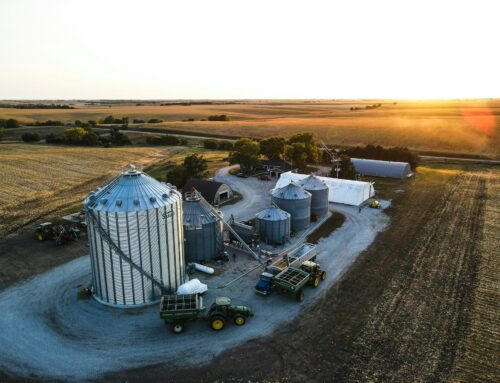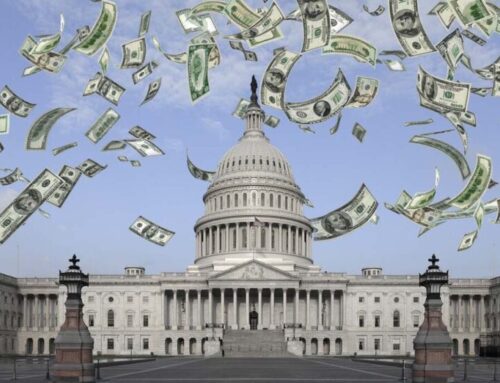With all the pomp and circumstance of a real legislative hearing, this week a subcommittee of the House Agriculture Committee unanimously rubberstamped an extension of existing commodity farm subsidies for the next five years. This bizarre step signals to the rest of Congress that the agriculture committee hopes to continue failed Dust Bowl era farm-support programs that have cost taxpayers billions of dollars and hurt family farmers by funneling federal subsidies into the hands of a few agribusiness companies and consolidating the farming business.
The 18-member committee ignored barrels of ink spilled in hundreds of articles and editorials and virtually every independent expert on the urgent need for commodity subsidy reform. The committee also decided that innovative proposals (Bring the Farm Bill into the 21st Century ) – such as FARM 21 offered by Congressmen Ron Kind(D-WI) and Jeff Flake(R-AZ) – deserved nothing more than a wisecrack or two. “Seems like a kind of flaky way to get into the farm bill,” quipped Congressman Earl Pomeroy(D-ND). “This is a threat to everyone, the entire world,” added Rep. Frank Lucas (R-OK).
The FARM 21 proposal (Modernizing the Farmer Safety Net: Farm Policy for the 21st Century) would fix the commodity portion of the farm bill and save taxpayers an estimated $20 billion in the next five years. The existing pot of subsidy dollars would be transitioned into farmer-owned “risk management” accounts. These accounts could be tapped by farmers when their revenues dip below a certain historical average, or for certain rural investment undertakings. For tax purposes, the accounts are treated like traditional IRAs. Among other things, $5 billion worth of the savings would go to debt reduction over the first five years. After five years, the transition period would be over and the taxpayer would be off the hook for propping up agribusiness.
When the 2002 farm bill expires at the end of September, commodity subsidies will have cost taxpayers upwards of $100 billion. Just five crops – corn, cotton, rice, wheat, and soybean – get 95% of taxpayer subsidies. And according to some number-crunching (reg. required) of United States Department of Agriculture (USDA) data by Environmental Working Group, recipients of government farming handouts include a former pro basketball player, millionaires, and a talk show host. If it weren’t for all the taxpayer cash involved, we might think they were casting a bad reality TV show – Farming with the Stars.
Not that the subcommittee didn’t take a stand about something. At least one member, with a straight face, expressed outrage about a proposal to keep wealthy farmers from receiving subsidies. Apparently, the existing $2.5 million cap should remain in place to ensure that small, hardscrabble family farmers get their fair share.
In the 1930s farmers accounted for 20 percent of the U.S. population and agriculture made up nearly 8 percent of the Gross Domestic Product (GDP). Today, farmers make up less than 2 percent of the U.S. population and agriculture accounts for less than 1 percent of GDP. The average farm used to be about 200 acres, but now that has increased to approximately 500 acres per farm. And according to USDA, in 2003 median wealth of farm households ($416,250) was five times the estimated median wealth of all U.S. households ($89,578).
Maybe we are naïve, but we thought we recently noted a whiff of farm subsidy reform in the beltway air. The committee would have none of it. In addition to FARM 21, proposals by the President and by Citigroup, Inc. were offered as “straw man” amendments to the underlying legislation. All received their share of ridicule and rhetoric, which seemed to be the point of the day’s deliberations (the President’s proposal to revamp the farm bill earned the lone single vote of support). In fact, pro-corporate subsidy lawmakers seem to have brought up the reform proposals just so they could knock them down before the Farm Subsidy Hallelujah Chorus. Seems like a sinister way to discredit important alternatives when they end up being considered on the floor of the House.
Rubber stamping bad legislation that would continue to hurt family farms and line the pockets of people who don’t need the money is terrible policy and rates as one of the most embarrassing blemishes on the 110th Congress. Show trials among sycophants and agribusiness subsidy apologists cannot substitute for legitimate legislative deliberation.
For more information, contact Steve Ellis at (202)-546-8500 ext. 126 or email











Get Social